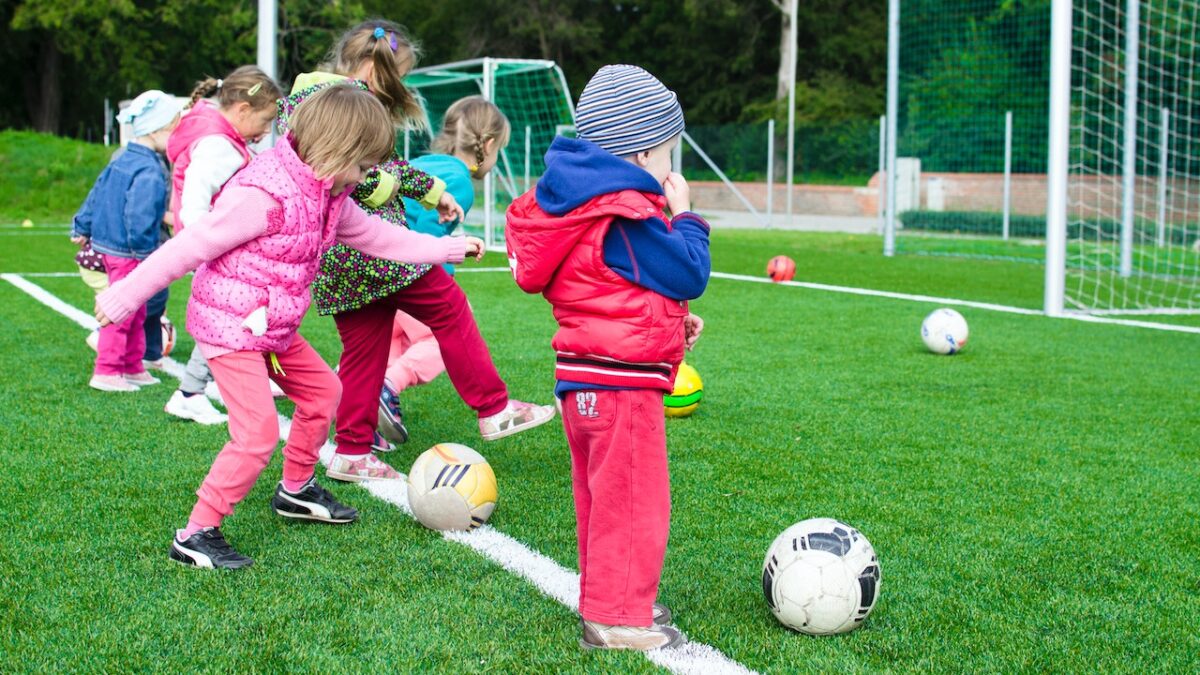There was a moment at soccer practice some years ago when another dad asked me what my plans for my daughter were. I wasn’t exactly sure what he meant until he clarified. He was asking about her soccer career. I needed to think about what high school she’d go to, what camps she’d attend, and what club might be the best fit. I demurred rather than giving my real answer because it’s not always a popular one with sports parents. I didn’t then, and don’t now, have any plans for her career, soccer or otherwise. My wife and I are just chauffeurs and patrons for an athletic activity that she’s loved since she was a 4-year-old.
Not everyone feels this way, which is one reason kids’ sports represent a $19.2 billion industry, or at least they did in 2019. Though participation has been decreasing, there are still a lot of little ones out there playing on weekends, practicing during the week, and attending private coaching sessions in between. That’s a lot of money going to coaches, league fees, tournament fees, hotels, restaurants, and all of the other businesses in the orbit of youth sports.
For us, it started in daycare with a program called Happy Feet. On Saturdays, said daughter would gather with other little kids to play organized soccer, or some semblance thereof. There was no goalkeeper. There were no positions. The only strategy was chaos. It was fun for all involved because kids, particularly young ones, love chaos. Our daughter cut through the chaos, though, and scored goal after goal. Sometimes, she’d even steal the ball from her teammates to go score.
This was not because of some preternatural skill on the field. This was not our moment as parents to realize that perhaps we’d welcomed a little Alex Morgan into our family. She was just quicker on the uptake when it came to understanding that the point of the chaos was to get the ball in the net while all the other kids on the field thought the chaos was the point. Nevertheless, she persisted and now at almost 14 is still playing. We have not started shopping for an Olympic medal display nor made plans for how to handle college and pro recruiters.
It’s not that we don’t love her and think she has limitless potential in life, it’s just that we understand odds better than some parents. And the odds are not in her favor, because that’s how the odds work when discussing college scholarships and pro deals for our little athletes. Less than 2 percent of high school athletes get scholarships. Then less than 2 percent of college athletes go pro. That means that for most kids, high school, if they play for that long, will be the end of their athletic careers.
Trust me, parents, it’s OK. We can do our best for them — driving them here and there, sleeping in myriad hotels for tournaments, spending copious amounts of money — but also still chill out a little bit. The chances of us being the next Earl Woods or Richard Williams are basically zero. The money we spend on sports is gone, and it will never come back to us, or accrue to them, in any tangible form.
Which isn’t to say it’s a waste. There is a lot of good that can come from organized sports, but as parents, we need to keep some perspective. We also need to remember that kids, while echoes of us in many ways, are also independent and unique beings. They are not vessels for us to pour our own hopes and dreams into, pushing them to achieve what we wished we had. There’s also the fact that childhood is supposed to be fun. Most of life is about being existentially crushed. There’s no reason to start the process early.
So keep driving them around, knowing that in the process they’ll learn a thing or two about perseverance, teamwork, and how to properly pack for weekend road trips. Enjoy the thrill of victory, the agony of defeat, and, specifically for us soccer parents, the various ways to discuss a tie. Be glad they’re staying physically active and making friends. Also be glad they’re sometimes making frenemies, which will be an important skill to have if they end up working in an office.
Just don’t think of it as mapping out their future, because, and this is worth repeating, the numbers just don’t bear that path out. But beyond that, if you really want to guarantee a financially successful life, don’t go for sports. Instead, consider an arranged marriage. Sure, the finance guy whose son you promise to pair your daughter up with may blow up his firm and not have the stock portfolio or the goats you negotiated for when the time comes, but he’ll probably have some other assets tucked away. When the Olympic dream dies, on the other hand, you won’t have even one measly goat to show for your investment.
So sit back, relax, and enjoy the games. Time is the most precious commodity we get on this planet, and the memories we’ll have of using it on them will last much longer than the pride we’d get from glancing at that Olympic medal. And by the way, that prize is only worth about $800 — or roughly about half of what it costs for one season of play.









